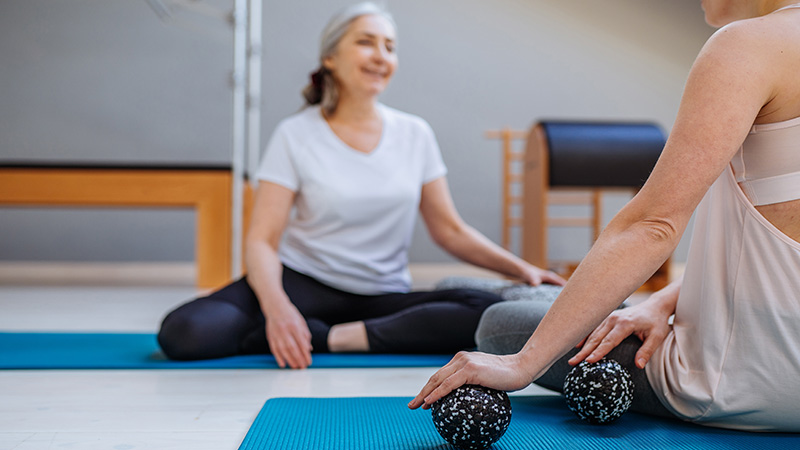Menopause, or the end of a woman’s menstrual cycle, occurs for most women between the age of 45 and 55. It’s something every woman goes through, but it’s a unique experience for each, with different symptoms and feelings attached. For some, it marks the beginning of a new life chapter of self-care and fitness; for others, it can be an upsetting reminder of ageing. We speak to coach ANITA YIU from ATP Personal Training on how hiring a fitness coach can not only help you to identify and understand changes occurring in your body, but also help to alleviate the physical symptoms that can be debilitating for so many. (Hot flushes, for example, are experienced by an estimated 75 percent of perimenopausal women.)
Four stages of menopause
#1 Premenopause: No obvious physical symptoms of perimenopause or menopause. Periods (regular or irregular) continue, as does reproduction, though hormonal changes may indicate that perimenopause is on the way.
#2 Perimenopause: Early stage of menopause – usually from 8 to 10 years before – characterised by a drop in oestrogen. Periods may become irregular or late, with heavier/lighter menstrual flow, or there may be none in some months. Symptoms of menopause (listed, right) may begin; cholesterol levels can also go up.
#3 Menopause: Defined as one full calendar year of no menstrual periods. As the ovaries stop producing eggs, levels of FSH (follicle stimulating hormone) will increase. (Ask your doctor to test these levels to gauge if you’re nearing menopause.)
#4 Post Menopause: One year after your final period, you are officially “postmenopausal”. Symptoms start to ease and hormones stabilise at a low level; you will no longer be able to bear children and there will be no more periods, but you may be at increased risk of osteoporosis due to a lack of oestrogen.
Common symptoms
- hot flushes
- night sweats
- vaginal dryness
- change in libido
- diminished sleep quality
- emotional instability
- higher resting heart rate
- Headaches, joint and muscle aches
- forgetfulness
- hair loss
- weight gain
If all this sounds like a lot, add the stresses of everyday life, balancing work and family and trying to stay fit and healthy, and it can easily become overwhelming.
Happily, there is good news! First, know that you’re not alone. Your own menopause is unique to you, but you will share symptoms with many other women – and many of these symptoms can be eased or even erased completely with a change of behaviour.
Doing things differently
But how do we change our behaviour? What can we do to limit our risk of osteoporosis, type 2 diabetes, early onset dementia or anxiety?
At ATP Personal Training, we have a holistic approach to health, which of course includes looking closely at our clients’ lives and any changes they’re experiencing. More than most people, we understand what you are going through, and we empathise from Day 1. We can help you identify why you might feel a certain way; perhaps you aren’t aware of some symptoms of perimenopause, for example. We have a deep understanding of the psychological and physiological aspects of this time of your life.
An ATP Fitness Coach can help you to learn to manage and control your symptoms through lifestyle, nutrition and training, and they can recommend the exact supplements to optimise any hormone imbalances. Having a coach to improve your fitness can also improve your mood and lower anxiety levels.
Come in for an initial consultation and see why so many women choose to train with us to support them as they power through this important stage of their life.
Find out more at atp.fitness.
Subscribe to Expat Living now so you never miss an issue!






